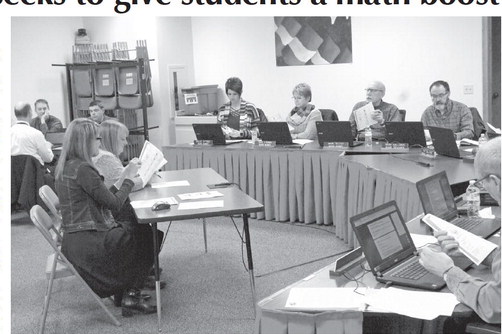Medford board seeks to give students a math boost


Medford students will have access to more math help at the high school under a proposal approved by the Medford School Board on Monday.
Board members approv...


Medford students will have access to more math help at the high school under a proposal approved by the Medford School Board on Monday.
Board members approv...